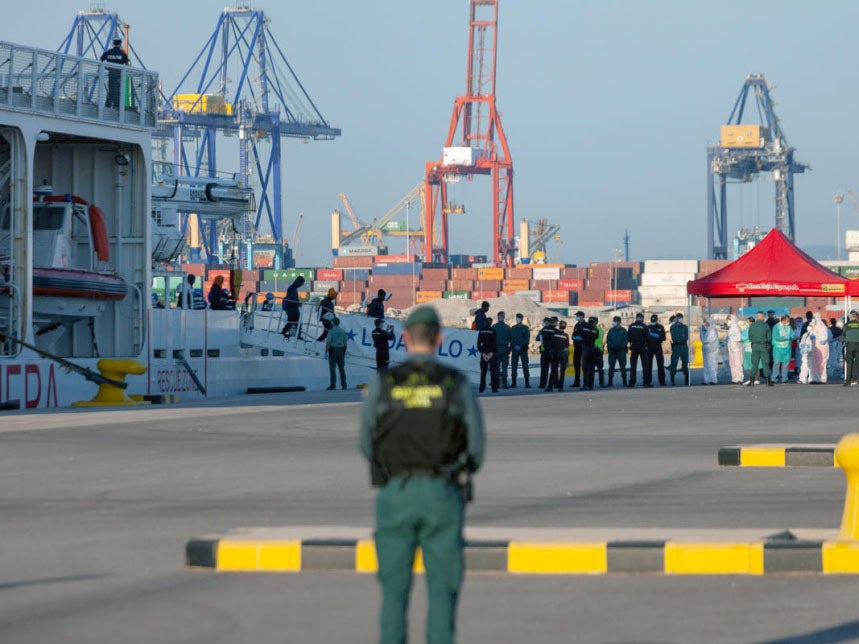Mediterranean crossings deadlier than ever, new UNHCR report warns
More than 300 people perished on sea route from North Africa to Spain so far in 2018, compared with 200 in whole of 2017, as UNHCR urges Europe to 'muster humanity to save lives'

Your support helps us to tell the story
From reproductive rights to climate change to Big Tech, The Independent is on the ground when the story is developing. Whether it's investigating the financials of Elon Musk's pro-Trump PAC or producing our latest documentary, 'The A Word', which shines a light on the American women fighting for reproductive rights, we know how important it is to parse out the facts from the messaging.
At such a critical moment in US history, we need reporters on the ground. Your donation allows us to keep sending journalists to speak to both sides of the story.
The Independent is trusted by Americans across the entire political spectrum. And unlike many other quality news outlets, we choose not to lock Americans out of our reporting and analysis with paywalls. We believe quality journalism should be available to everyone, paid for by those who can afford it.
Your support makes all the difference.There has been a sharp rise in the number people dying while trying to cross the Mediterranean to reach Europe, the UN refugee agency has said in its latest report.
While fewer people are making the journey to Europe, the rate of deaths has risen sharply. In the central Mediterranean, one in 18 people has died or gone missing so far this year, compared to one death for every 42 people who crossed in the same period in 2017.
Along the sea route from North Africa to Spain, more than 300 people have perished this year already, a marked increase on 2017 – when 200 deaths were recorded in the whole year, the report states.
More than 78 deaths of refugees and migrants have meanwhile been recorded so far along land routes in Europe or at Europe’s borders, compared to 45 in the same period last year.
Pascale Moreau, director of UNHCR’s Europe bureau, said: “This report once again confirms the Mediterranean as one of the world’s deadliest sea crossings.
“With the number of people arriving on European shores falling, this is no longer a test of whether Europe can manage the numbers, but whether Europe can muster the humanity to save lives.”
In recent months, the UNHCR has called for a predictable, regional approach for the rescue and disembarkation of people in distress in the Mediterranean Sea.
The organisation is also calling on Europe to increase access to safe and legal pathways for refugees, including by increasing resettlement places and removing obstacles to family reunification – helping to provide alternatives to potentially deadly journeys.
NGOs including Médecins Sans Frontières (MSF) and migrant search-and-rescue organisation SOS Méditerranée recently blamed the Italian government, among other European authorities, for the “skyrocketing” death toll.
In June, Italy’s new populist government shut the country’s ports to all humanitarian boats, calling them a “taxi service” for illegal immigrants. Interior minister Matteo Salvini called for other EU nations to follow its lead and block migrant rescue ships from landing on European shores.
Italy has accused its partners of not sharing the burden of migrants who arrive on EU’s southern border, stoking tensions particularly with France, Malta and Germany.
In July, the European Commission meanwhile offered to pay countries €6,000 (£5,346) per person to host migrants in secure centres in their territory as part of a plan to break the deadlock in Brussels over migration policy.
Join our commenting forum
Join thought-provoking conversations, follow other Independent readers and see their replies
Comments